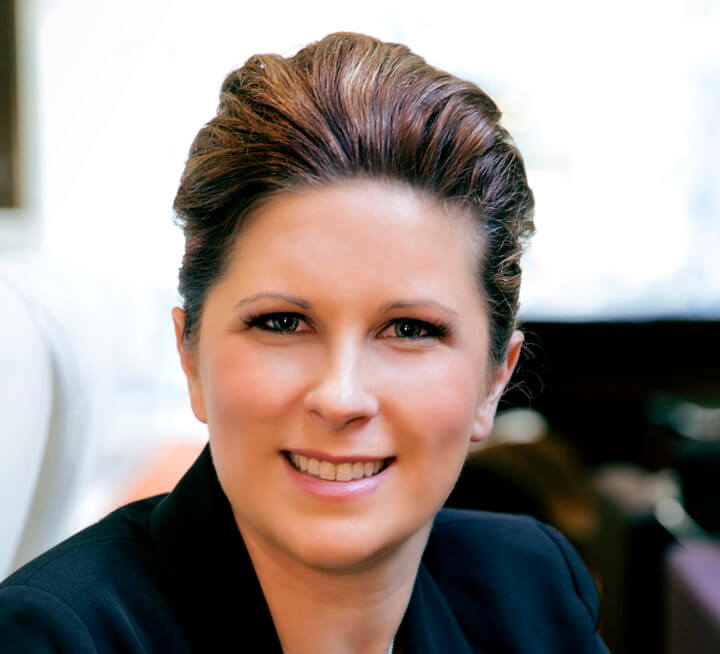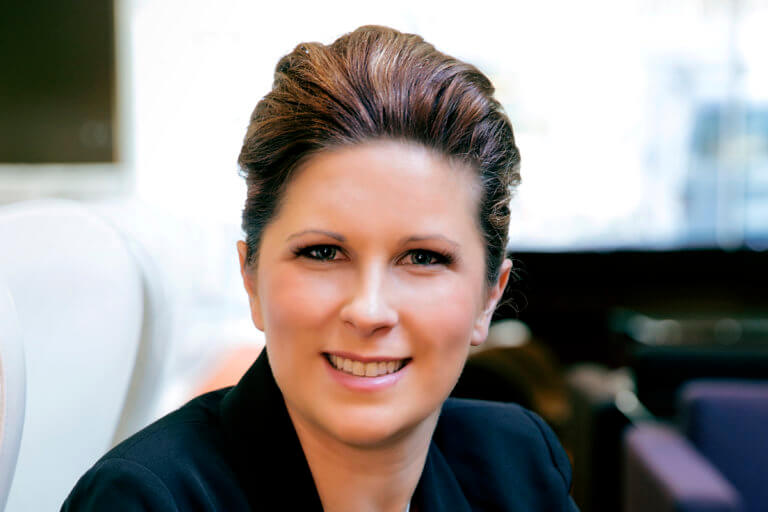

Graduate Certificate of Applied Coaching
Graduate Certificate of Applied Coaching
Take the lead and join our graduate coaching course - awarded Gold Standard ICF accreditation

Overview
Take the lead and enhance your career prospects with a qualification in applied coaching. Become a leader who can successfully guide individuals towards a sustainable future.
Now, more than ever, there is a need for strong leadership as individuals and organisations face unprecedented economic, social, and psychological challenges.
The Graduate Certificate of Applied Coaching teaches you to inspire change, empower others, and improve performance within your organisation.
Individuals wishing to strengthen their leadership skills, progress their careers, or re-skill in a new area should consider undertaking this course. It has been awarded the International Coaching Federation (ICF) accreditation for its excellence in coaching education.
This course has been accredited by ACAP under its self-accrediting authority.

What you'll learn
Expertise in human behaviour forms the foundation of all our courses including our Graduate Certificate of Applied Coaching.
EXPLORE WITH AN APPLIED FOCUS:
- Coaching methodology
- Sustainable leadership
- Professional wellbeing
- Applied coaching skills

Potential Careers
Once you graduate from the Graduate Certificate of Applied Coaching, you will open doors to a range of possible career opportunities. Listed below are a few typical roles you could consider.
-
Leadership/Executive
-
Wellness Coach
-
Consultant
-
Professional Facilitator
-
People and Culture Expert

ACAP awarded ICF accreditation
ACAP has been awarded the International Coaching Federation (ICF) accreditation for its excellence in coaching education. The four-year ICF accreditation applies to our Graduate Certificate of Applied Coaching for 170 program hours of coach-specific training.
This achievement is a result of a rigorous review process and demonstrates that ACAP’s coaching curriculum aligns with the ICF definition of coaching, Core Competencies and Code of Ethics.
Course structure
The Graduate Certificate of Applied Coaching course is comprised of 4 units, which are level 500 units.
The course duration is 26 weeks full time or up to 2 years part time. For more information on the recommended course sequence click here.
Level: AQF 8 core
Credit points: 6
Prerequisites: None
Unit Description:
This unit explores the core theories and techniques of evidence-based coaching and coaching psychology. Delve into the world of understanding how change happens by exploring contemporary understandings of the psychology of change including neuroscience and human behavioural science. The process of change is not something that happens within the individual devoid of others and context – somatic, family, social network, workplace organisational and environmental factors all play their part in the shaping our ways of thinking, feeling and behaving. This unit of study explores both the theory and practice of coaching psychology from an evidence-based approach. Each weekly seminar has both a lecture component and an experiential learning component. The experiential learning component involves students applying their learning to their own personal life experience as well as participating in group discussions and coaching practice.
Learning Outcomes:
On successful completion of this unit, students will be able to:
- Effectively demonstrate a theoretical and technical knowledge of a range change theories from fields such as psychology, neuroscience and human behavioural science.
- Critically analyse, synthesise, evaluate and utilise models of applied coaching psychology skills and relevant industry standards for leadership coaching coaching
- Critically analyse, synthesise and evaluate research findings, the theory and practice of coaching and applied ethics to develop their individual leadership coaching practice.
- Demonstrate professional application of coaching knowledge and skills using reflective practices to support ongoing professional and personal development
Learning and Teaching Process:
The content of this unit has been designed to maximise the learning and the integration of the subject matter. Much of the unit material is specific to the Australian context. For example, this outline does include reference to diverse individuals and diverse groups of individuals. Diversity can encompass but is not limited to: individuals identified with atypical and typical behaviours; Aboriginal and Torres Strait Islander peoples; LGBTIQ+ peoples; culturally and linguistically diverse peoples; individuals with chronological / lifespan status; individuals with learning differences; individuals with different family backgrounds and history.
Students are encouraged to access additional information relevant to their local context, which will assist in applying the learning and ensuring its relevance. This may include specific legislation, government and professional association resources, and journals. It is important that students’ reading is broad.
In general students are expected to:
- Read each section of the unit carefully and make notes on new content, and points that are unclear, or in conflict with previous learning or experience
- Complete readings of the text and other readings and resources, making notes on important insights or facts, especially those relevant to assignments
There may be periodic suggestions or issues on which students are asked to deliberate and reflect. Sometimes these are dilemmas or difficult issues associated with the study topic which have no right or wrong answers but are used to trigger critical thinking.
Learning activities are set in each section of the unit to give opportunities for further learning. These activities include self-inventories, quizzes, video activities, exercises, case studies and reflection activities. These activities do not need to be sent to the academic teacher for marking. However, valuable learning opportunities will be missed by not engaging with the activities.
In this Unit students will engage in 36 hours of teacher directed and student directed activities throughout the trimester. These 36 hours are completed online.
Students are also expected to engage in at least 10 hours per week of independent study throughout the trimester.
The workload may include regular weekly learning tasks, attending classes (online), online activities, completing readings, hurdle task activities, researching module topics, and completing prescribed assessment tasks. Students will be required to be proactive and self-directed in their learning, sourcing information as required, especially from the sources available through the Moodle site.
Level: AQF 8 core
Credit points: 6
Prerequisites: None
Unit Description:
This unit explores the core theories and techniques for the development and maintenance of professional wellbeing and resilience, using evidence based positive psychology. Wellbeing and resilience in this unit is understood as the capacity to adapt rapidly to change and to remain flexible in thoughts, emotions and behaviours during stressful times. This unit examines the concepts of working well and living well with the understanding that the personal influences the professional. The unit explores the evidence base of applied positive psychology by considering a range of wellness related constructs such as authentic relationships, meaning, purpose and direction, vitality and energy, balance and boundaries, intellectual engagement and flow. In addition, it examines the concept of resilience, mental toughness and emotional regulation, which is key to maintaining wellbeing in work and life. Each weekly seminar has both a lecture component and an experiential learning component. The experiential learning component involves students applying their learning to their own personal life experience as well as participating in group discussions and coaching practice.
Learning Outcomes:
On successful completion of this unit, students will be able to:
- Demonstrate a superior theoretical and applied knowledge contemporary understandings of wellbeing and resilience in the context of evidence-based coaching
- Critically analyse and classify models of wellbeing and resilience in the context of coaching for application with diverse individuals and organisations
- Apply critical thinking to research and develop innovative solutions utilizing both the theory and practice of wellbeing and resilience
- Demonstrate highly reflective professional practice in leadership and executive coaching for wellbeing and resilience
Learning and Teaching Process:
The content of this unit has been designed to maximise the learning and the integration of the subject matter. Much of the unit material is specific to the Australian context. For example, this outline does include reference to diverse individuals and diverse groups of individuals. Diversity can encompass but is not limited to: individuals identified with atypical and typical behaviours; Aboriginal and Torres Strait Islander peoples; LGBTIQ+ peoples; culturally and linguistically diverse peoples; individuals with chronological / lifespan status; individuals with learning differences; individuals with different family backgrounds and history.
Students are encouraged to access additional information relevant to their local context, which will assist in applying the learning and ensuring its relevance. This may include specific legislation, government and professional association resources, and journals. It is important that students’ reading is broad.
In general students are expected to:
- Read each section of the unit carefully and make notes on new content, and points that are unclear, or in conflict with previous learning or experience
- Complete readings of the text and other readings and resources, making notes on important insights or facts, especially those relevant to assignments
There may be periodic suggestions or issues on which students are asked to deliberate and reflect. Sometimes these are dilemmas or difficult issues associated with the study topic which have no right or wrong answers but are used to trigger critical thinking.
Learning activities are set in each section of the unit to give opportunities for further learning. These activities include self-inventories, quizzes, video activities, exercises, case studies and reflection activities. These activities do not need to be sent to the academic teacher for marking. However, valuable learning opportunities will be missed by not engaging with the activities.
In this Unit students will engage in 36 hours of teacher directed and student directed activities throughout the trimester. These 36 hours are completed online.
Students are also expected to engage in at least 10 hours per week of independent study throughout the trimester.
The workload may include regular weekly learning tasks, attending classes (online), online activities, completing readings, hurdle task activities, researching module topics, and completing prescribed assessment tasks. Students will be required to be proactive and self-directed in their learning, sourcing information as required, especially from the sources available through the Moodle site.
Level: AQF 8 core
Credit points: 6
Prerequisites: None
Unit Description:
Ongoing change is the new norm. Conditions of ambiguity and change create tensions at a personal and group level. This unit explores the development of the inner resources required to lead and work in a world of constant change. The key focus of this unit is exploring and developing the psychological principles involved in the development of flexibility and adaptability – key attributes of leadership performance. This unit provides the understanding and skills required to coach internal staff or individuals in formal leadership roles. Each weekly seminar has both a lecture component and an experiential learning component. The experiential learning component involves students applying their learning to their own personal life experience as well as participating in group discussions and coaching practice, to enhance self-awareness and the concept of ‘leader as coach’.
Learning Outcomes:
On successful completion of this unit, students will be able to:
- Critically analyse, synthesise, evaluate and apply leadership development theories of behaviour change to leadership coaching
- Demonstrate a professional level theoretical and applied knowledge of leadership development in order to engage in coaching for individuals and in the workplace
- Apply critical thinking processes to research findings and develop innovative coaching solutions utilising both the theory and practice of leadership development frameworks
- Demonstrate professional and ethical reflective practice in executive and leadership coaching for diverse people and contexts
Learning and Teaching Process:
The content of this unit has been designed to maximise the learning and the integration of the subject matter. Much of the unit material is specific to the Australian context. For example, this outline does include reference to diverse individuals and diverse groups of individuals. Diversity can encompass but is not limited to: individuals identified with atypical and typical behaviours; Aboriginal and Torres Strait Islander peoples; LGBTIQ+ peoples; culturally and linguistically diverse peoples; individuals with chronological / lifespan status; individuals with learning differences; individuals with different family backgrounds and history.
Students are encouraged to access additional information relevant to their local context, which will assist in applying the learning and ensuring its relevance. This may include specific legislation, government and professional association resources, and journals. It is important that students’ reading is broad.
In general students are expected to:
- Read each section of the unit carefully and make notes on new content, and points that are unclear, or in conflict with previous learning or experience
- Complete readings of the text and other readings and resources, making notes on important insights or facts, especially those relevant to assignments
There may be periodic suggestions or issues on which students are asked to deliberate and reflect. Sometimes these are dilemmas or difficult issues associated with the study topic which have no right or wrong answers but are used to trigger critical thinking.
Learning activities are set in each section of the unit to give opportunities for further learning. These activities include self-inventories, quizzes, video activities, exercises, case studies and reflection activities. These activities do not need to be sent to the academic teacher for marking. However, valuable learning opportunities will be missed by not engaging with the activities.
In this Unit students will engage in 36 hours of teacher directed and student directed activities throughout the trimester. These 36 hours are completed online.
Students are also expected to engage in at least 10 hours per week of independent study throughout the trimester.
The workload may include regular weekly learning tasks, attending classes (online), online activities, completing readings, hurdle task activities, researching module topics, and completing prescribed assessment tasks. Students will be required to be proactive and self-directed in their learning, sourcing information as required, especially from the sources available through the Moodle site.
Level: AQF 8 core
Credit points: 6
Prerequisites: COAC5006 Fundamentals of Coaching Theory and Practice and COAC5016 Coaching for Professional Wellbeing and Resilience. COAC5026 may be completed consecutively.
Unit Description:
This unit provides the opportunity to practice coaching and to have real time feedback from experienced ICF qualified coaches. The unit allows students to continue to build on their knowledge and coaching skills and develop their coaching identity. Students will have the opportunity to have their coaching observed by a qualified ICF coach who will provide valuable feedback particularly in relation to how they have incorporated the ICF Core Competencies. This unit an experiential unit and is run over one term so as to provide students the opportunity to process and incorporate their new learning.
Learning Outcomes:
On successful completion of this unit, students will be able to:
- Expertly apply the major theories and models of behaviour change to deliver coaching for effective outcomes.
- Demonstrate expertise in the application of industry standards to coaching relating to professional and ethical practice.
- Demonstrate sophisticated understanding of core issues in workplace and personal coaching, and how to professionally address these using evidence-based coaching practices.
- Develop professional reflective practice and the need for supervision to support ongoing professional and personal development
Learning and Teaching Process:
The content of this unit has been designed to maximise the learning and the integration of the subject matter. Much of the unit material is specific to the Australian context. For example, this outline does include reference to diverse individuals and diverse groups of individuals. Diversity can encompass but is not limited to: individuals identified with atypical and typical behaviours; Aboriginal and Torres Strait Islander peoples; LGBTIQ+ peoples; culturally and linguistically diverse peoples; individuals with chronological / lifespan status; individuals with learning differences; individuals with different family backgrounds and history.
Students are encouraged to access additional information relevant to their local context, which will assist in applying the learning and ensuring its relevance. This may include specific legislation, government and professional association resources, and journals. It is important that students’ reading is broad.
In general students are expected to:
- Read each section of the unit carefully and make notes on new content, and points that are unclear, or in conflict with previous learning or experience
- Complete readings of the text and other readings and resources, making notes on important insights or facts, especially those relevant to assignments
There may be periodic suggestions or issues on which students are asked to deliberate and reflect. Sometimes these are dilemmas or difficult issues associated with the study topic which have no right or wrong answers but are used to trigger critical thinking.
Learning activities are set in each section of the unit to give opportunities for further learning. These activities include self-inventories, quizzes, video activities, exercises, case studies and reflection activities. These activities do not need to be sent to the academic teacher for marking. However, valuable learning opportunities will be missed by not engaging with the activities.
In this Unit students will engage in 36 hours of teacher directed and student directed activities throughout the trimester. These 36 hours are completed online.
Students are also expected to engage in at least 10 hours per week of independent study throughout the trimester.
The workload may include regular weekly learning tasks, attending classes (online), online activities, completing readings, hurdle task activities, researching module topics, and completing prescribed assessment tasks. Students will be required to be proactive and self-directed in their learning, sourcing information as required, especially from the sources available through the Moodle site.
View unit descriptions
Course Learning Outcomes
- Demonstrate an advanced theoretical and technical knowledge of leadership coaching and relevant industry standards for contemporary professional coaching practice.
- Critically analyse, synthesise, evaluate and apply evidence based coaching research and techniques to generate innovative coaching interventions.
- Demonstrate professional practice and problem solving using ethical principles, processes and cultural responsiveness to support diverse applications of coaching.
- Professionally apply knowledge and skills to effectively demonstrate sophisticated levels of reflection, communication and responsibility as a leadership coach and life-long learner.
Pathways for future study
Graduates of the Graduate Certificate of Applied Coaching can also gain entry to ACAP’s Master of Business Administration (MBA) program.
For further information on the ACAP MBA pathway, including unit credit and scholarship options, please visit here .
Other postgraduate study options in counselling and social work are also available at ACAP.





